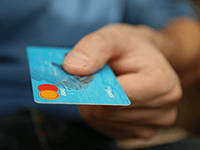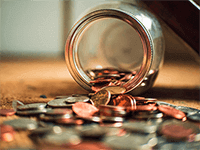
Buy now pay later has become a big trend recently for online shoppers.
Whilst it can be tempting to hop on the trend it’s important to find out what the impact of these accounts can be.
So, in this blog, we take a look into the impacts BNPL can have on your credit score…
What is buy now pay later?
Buy now pay later allows you to purchase items, which you will pay for in the future rather than immediately. So essentially it is a type of credit.
With this type of credit, you often will not be charged interest, provided you stick to the repayment schedule. However, if you miss any payments you will start being charged interest and it is usually at a high rate.
The terms may vary depending on what provider you go with. Some providers may give you a 30 day window to repay, whilst others might give you a longer time frame such as a year.
It can be a really useful form of credit if used correctly, as it allows you to spread repayments over a wider time frame and it can be much quicker to get than other borrowing methods.
How does buy now pay later work?
The process is very straightforward. Essentially, you sign up with a provider such as Klarna or Clearpay and they will pay for the goods for you.
Once the item has been paid for you will then be required to repay your provider within a set time frame. Each provider may have different terms, so it’s important to read up on these to make sure you’re aware of what you need to do.
There are a few different options you might be able to choose from. These are:
- Paying the total balance all at once on a given day
- Making multiple smaller payments over a few days, weeks or months
It’s best to research the different providers before you get started, so you can decide which solution would be the best fit for you.
Can buy now pay later affect my credit score?
For a long while having an account did not affect your credit score at all. But, this has changed.
Buy now pay later accounts have started to be reported to credit agencies, and so they may now influence your credit score.
To add to this, if you miss any of your scheduled payments these will also appear on your credit record and will hurt your score.
Due to this, you need to consider whether it is essential for you to have an account. If you do need an account you need to make sure that you always meet your repayments, otherwise you could end up getting into debt, which will harm your credit score.
What happens if you do get into debt?
If you do run into financial problems or you’re worried about getting into trouble, you should speak with a debt advice charity or your mortgage lender. Debt advice charities (such as Step Change) and lenders may be able to advise you on the best course of action.
It also could be wise to stop spending money on these accounts until you have resolved the problems.
In a situation where you have multiple debts on these accounts, it might be possible to consolidate your debts into one repayment. This may decrease your interest charges and help to make managing your finances easier.
However, before you take any type of action it’s best to get advice first.
If you are thinking of consolidating existing borrowing you should be aware that you may be extending the terms of the debt and increasing the total amount you repay.
Summary
Overall, buy now pay later can be a really useful type of credit. However, if it isn’t controlled properly it can quickly cause problems for you, which can harm your credit score. Therefore, it is always worth using these accounts with caution.
Think carefully before securing other debts against your home. Your home may be repossessed if you do not keep up repayments on a mortgage or any other debt secured on it.




